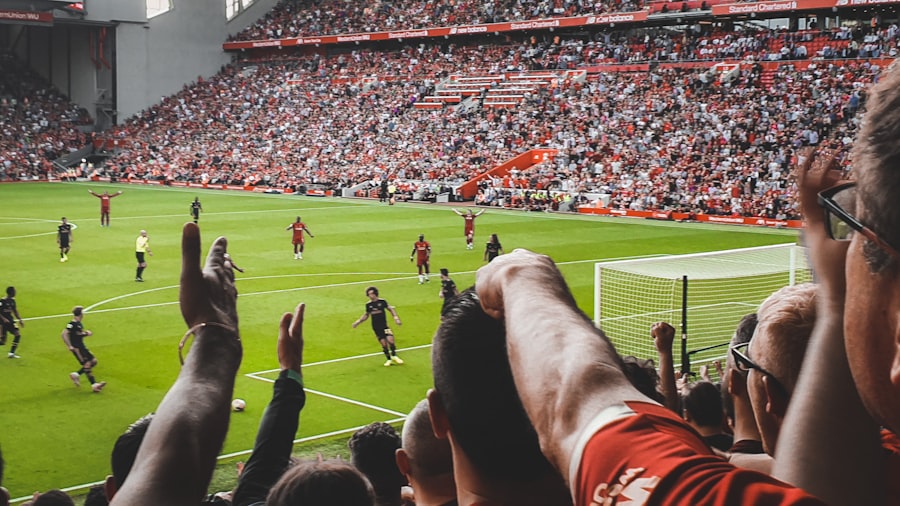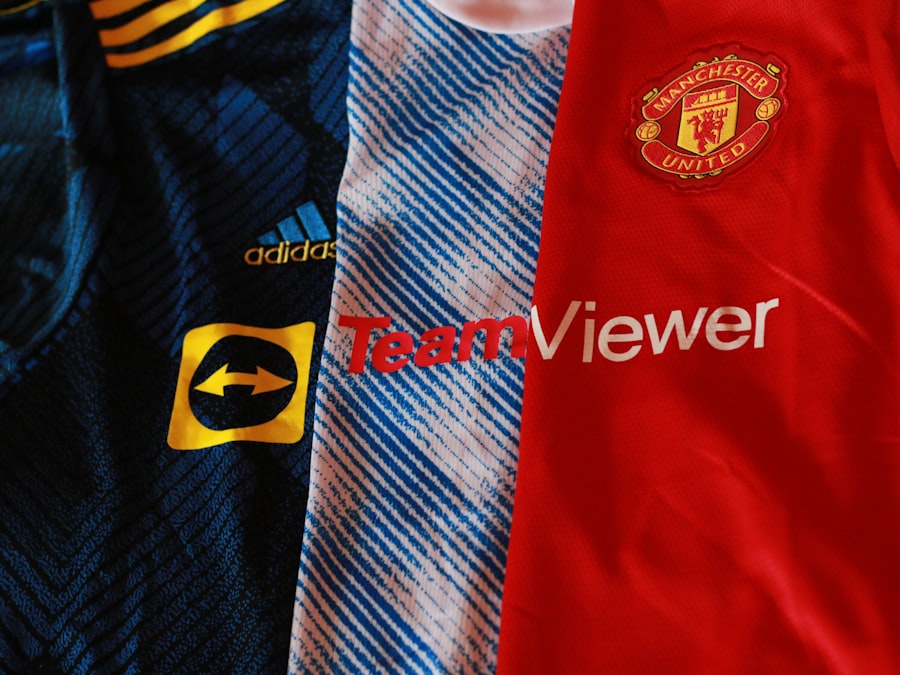Manchester United, one of the most storied football clubs in the world, has developed a marketing strategy that is as iconic as its rich history. Founded in 1878, the club has transcended the realm of sports to become a global brand, synonymous with excellence, passion, and a unique cultural identity. The marketing strategy of Manchester United is multifaceted, encompassing various elements that contribute to its enduring success.
From leveraging its historical legacy to engaging with fans across the globe, the club has crafted a narrative that resonates deeply with millions. At the heart of Manchester United’s marketing approach is its ability to connect emotionally with fans. The club’s storied past, including legendary players, unforgettable matches, and significant achievements, forms a compelling narrative that is skillfully woven into its marketing campaigns.
This emotional connection is not merely a byproduct of nostalgia; it is a strategic asset that the club harnesses to foster loyalty and engagement among its supporters. By positioning itself as a symbol of resilience and triumph, Manchester United has cultivated a passionate fan base that extends far beyond the borders of England.
Key Takeaways
- Manchester United has developed a strong global brand through strategic international marketing efforts.
- The club leverages high-profile sponsorships and partnerships to boost revenue and visibility.
- Digital and social media platforms play a key role in engaging and expanding the fanbase worldwide.
- Merchandise sales and licensing agreements are significant contributors to the club’s diversified revenue streams.
- Manchester United focuses on youth development and creating memorable fan experiences to sustain long-term success.
Building a Global Brand: Manchester United’s International Appeal
Manchester United’s international appeal is a testament to its successful branding efforts. The club has strategically positioned itself as a global entity, attracting fans from diverse cultures and backgrounds. This global reach is not accidental; it is the result of deliberate marketing initiatives that have included international tours, partnerships with local clubs, and community engagement programs.
For instance, the club’s pre-season tours in Asia and North America have not only showcased its talent on the pitch but have also allowed it to connect with fans in regions where football is rapidly growing in popularity. The club’s branding strategy emphasizes inclusivity and accessibility, ensuring that fans from all walks of life feel a sense of belonging. By engaging with local communities through grassroots initiatives and football clinics, Manchester United has successfully built a network of supporters who identify with the club’s values.
This approach has been particularly effective in markets like China and India, where football is gaining traction. The club’s ability to adapt its messaging to resonate with local cultures while maintaining its core identity has been instrumental in solidifying its status as a global brand.
Leveraging Sponsorships and Partnerships for Success

Sponsorships and partnerships play a pivotal role in Manchester United’s marketing strategy, providing both financial support and enhanced visibility. The club has established lucrative partnerships with global brands such as Adidas, Chevrolet, and Aon, which not only contribute to its revenue but also elevate its brand image. These partnerships are carefully curated to align with Manchester United’s values and target audience, ensuring that they resonate with fans while delivering value to sponsors.
One notable example is the long-term partnership with Adidas, which began in 2015. This collaboration has not only resulted in a significant financial boost for the club but has also allowed for innovative merchandise designs that appeal to fans worldwide. The iconic three stripes have become synonymous with Manchester United’s apparel, further solidifying the club’s presence in the global sportswear market.
Additionally, sponsorship deals often include promotional campaigns that leverage both digital and traditional media, amplifying the reach of both the club and its partners.
Engaging Fans through Digital and Social Media Marketing
| Metric | Description | Example Value | Importance |
|---|---|---|---|
| Engagement Rate | Percentage of fans interacting with content (likes, comments, shares) | 4.5% | High – Indicates content relevance and fan interest |
| Follower Growth Rate | Rate at which new followers are gained over time | 8% monthly | Medium – Shows expanding audience reach |
| Click-Through Rate (CTR) | Percentage of fans clicking on links in posts | 2.3% | High – Measures effectiveness of call-to-action |
| Average Session Duration | Average time fans spend on digital platforms | 5 minutes 20 seconds | Medium – Reflects content engagement depth |
| Share of Voice | Percentage of conversations about the brand vs competitors | 35% | High – Indicates brand presence in social media |
| Sentiment Analysis | Ratio of positive to negative mentions | 75% positive | High – Measures fan sentiment and brand perception |
| Video Views | Number of times video content is viewed | 150,000 views | Medium – Shows content reach and interest |
| Conversion Rate | Percentage of fans taking desired action (e.g., sign-up, purchase) | 3.1% | High – Measures success of marketing campaigns |
In an era where digital engagement is paramount, Manchester United has embraced social media as a key component of its marketing strategy. The club boasts millions of followers across various platforms, including Facebook, Twitter, Instagram, and TikTok. This extensive online presence allows Manchester United to engage with fans in real-time, sharing updates, behind-the-scenes content, and interactive experiences that foster a sense of community among supporters.
The club’s digital marketing initiatives are characterized by creativity and innovation. For instance, during match days, Manchester United often utilizes live social media updates to keep fans engaged, providing them with insights into player performances and match statistics. Additionally, the club has launched interactive campaigns such as fan polls and contests that encourage participation and generate excitement around upcoming matches.
By leveraging user-generated content and encouraging fans to share their experiences, Manchester United creates a dynamic online ecosystem that enhances fan loyalty.
Expanding Revenue Streams: Merchandise and Licensing
Merchandise sales represent a significant revenue stream for Manchester United, contributing to its financial stability and growth. The club has developed an extensive range of products that cater to diverse fan preferences, from traditional jerseys to lifestyle apparel and accessories. This broad product offering not only enhances brand visibility but also allows fans to express their allegiance in various ways.
Licensing agreements further amplify Manchester United’s merchandise revenue. The club collaborates with various manufacturers and retailers worldwide to produce officially licensed products that adhere to its quality standards. This strategy not only ensures authenticity but also expands the reach of Manchester United’s brand into new markets.
For example, partnerships with local retailers in Asia have enabled the club to tap into emerging markets where demand for football merchandise is on the rise. By continuously innovating its product lines and exploring new licensing opportunities, Manchester United remains at the forefront of the global sports merchandise industry.
Creating a Memorable Matchday Experience for Fans

The matchday experience at Old Trafford is an integral part of Manchester United’s marketing strategy. The club recognizes that attending a live match is not just about watching football; it is about creating lasting memories for fans. From the moment supporters arrive at the stadium to the final whistle, every aspect of the matchday experience is meticulously curated to ensure that fans feel valued and engaged.
One key element of this experience is the atmosphere within Old Trafford itself. The club invests in enhancing fan engagement through pre-match activities such as live music performances, fan zones, and interactive displays that celebrate the club’s history. Additionally, initiatives like “Fan of the Match” recognize dedicated supporters by featuring them on the big screen during games.
These efforts create a sense of community among fans and foster a deeper emotional connection to the club. Moreover, Manchester United has embraced technology to enhance the matchday experience further. Mobile apps provide fans with real-time updates on match statistics, player information, and even food ordering options within the stadium.
This integration of technology not only streamlines operations but also enriches the overall experience for attendees. By prioritizing fan engagement on match days, Manchester United reinforces its commitment to creating memorable moments for supporters.
Nurturing Youth Talent: Manchester United’s Academy and Development Programs
Manchester United’s commitment to nurturing youth talent is a cornerstone of its long-term marketing strategy. The club’s academy has produced some of football’s greatest talents, including Ryan Giggs, Paul Scholes, and Marcus Rashford. This legacy not only enhances the club’s reputation but also serves as a powerful marketing tool that resonates with fans who value homegrown talent.
The academy’s development programs are designed to identify and cultivate young players from diverse backgrounds. By investing in grassroots initiatives and local partnerships, Manchester United ensures that it remains connected to its community while scouting for potential stars. The club’s emphasis on youth development aligns with its brand identity as a club that values tradition and excellence.
Furthermore, success stories from the academy are often highlighted in marketing campaigns, showcasing the journey of young players who have risen through the ranks to represent the first team. These narratives not only inspire aspiring footballers but also reinforce Manchester United’s commitment to developing talent from within. By promoting its academy successes, the club strengthens its brand image as a nurturing environment for young athletes.
Future Challenges and Opportunities for Manchester United’s Marketing Strategy
As Manchester United navigates an ever-evolving landscape in sports marketing, it faces both challenges and opportunities that will shape its future strategy. One significant challenge is maintaining relevance in an increasingly competitive market where clubs are vying for global attention. With emerging leagues and teams gaining traction worldwide, Manchester United must continuously innovate its marketing efforts to retain its status as a leading football brand.
Additionally, changing consumer preferences present both challenges and opportunities for engagement. Younger generations are increasingly drawn to digital content and interactive experiences over traditional media consumption methods. To address this shift, Manchester United must adapt its marketing strategies by investing in cutting-edge technologies such as virtual reality experiences or augmented reality applications that enhance fan engagement.
On the other hand, opportunities abound in expanding into new markets where football is gaining popularity. Regions such as Africa and Southeast Asia present untapped potential for growth in fan engagement and merchandise sales. By tailoring marketing campaigns to resonate with local cultures while leveraging digital platforms for outreach, Manchester United can solidify its position as a global leader in football.
In conclusion, Manchester United’s marketing strategy is a dynamic blend of tradition and innovation that reflects its commitment to engaging fans worldwide while nurturing talent from within. As it faces future challenges head-on, the club’s ability to adapt will be crucial in maintaining its status as one of football’s most iconic brands.



